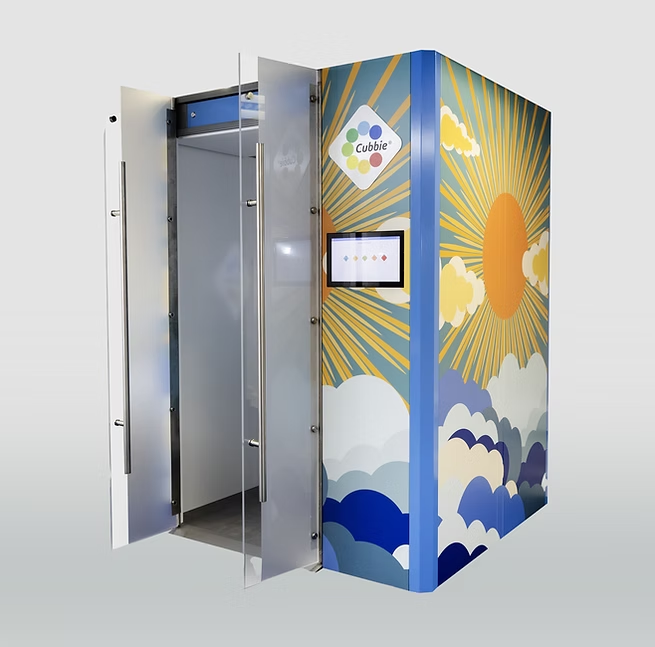Autistic individuals often struggle with sensory integration; this means you can be, at a given time, over or under sensitive to their sensory surroundings. Sights, sounds, textures, smells, tastes, movement may be felt more intensely, less intensely, or simply differently than others. Some students may have particular noises, smells, visuals, textures or tastes which they cannot bear or that they really like.
Background
The environment can be a cause of discomfort but once you understand your own sensory needs, you can adapt to new environments, routines, and incorporate self-care to support regulation. This will help reduce overwhelm, meltdowns, or shutdowns and help you settle better into university life. ATU is continually adapting the environment to make it more accessible to all but, with over 26,000 students studying at ATU, there’s no way to avoid chaos in your day.
How could this affect me?
So, what can you do to support your sensory profile and how can ATU help?
- Build recovery time into your daily routine
- Reduce unnecessary demands if you can
- Unmask when you can – being yourself uses less energy
- Use sensory tools, routines or movement breaks that help reset your nervous system
- Go outside in nature
Quiet Spaces
If you’re looking for some quieter spots to rest or recharge, there are a number of quiet spaces across each campus that you might like to use. Each campus is different but the DLSS will be able to help you identify these areas depending on which campus you attend. ATU campuses also possess Sensory cubbies for students to recharge and more are coming on stream. ATU are continuously adapting areas on campus to assist our autistic students.
Outdoor Spaces
If the weather is nice (or bring a good jacket & umbrella), find a place outside that you like to frequent. Nature can be very calming and restorative to our energy and is known to help everyone’s mental well being. Even a 15 minute walk under the sky, can help regulate the nervous system and prepare you to return to class ready to learn. Studies show time outdoors lowers cortisol (our major stress hormone), reduces blood pressure, reduces symptoms of depression and anxiety, and increases feelings of awe, gratitude, and joy (Bratman et al., 2015; Frumkin et al., 2017). Any outdoor space will more likely be calmer even just a patch of grass or a mature tree. Some of our ATU campuses have lovely walks on their grounds; just find the place you like.
Library Spaces
Libraries will have a quiet or learning zone where you can find a spot for yourself. They can be a good space to take some time to organise yourself and reset during a busy day. The Library isn’t just somewhere you can get books. It’s somewhere you can do your work on your own or with others, escape sensory overload and get some help with studying. This section of the toolkit will introduce our library and the services it can offer you. Some libraries have sensory tools you can borrow, just check your campus library website or ask any staff member.
We have some beautiful libraries and specialist library staff who want to help you make the most out of your time at ATU. They can help you with finding, choosing and using library resources, amongst many other things. Students can book study spaces, PCs and seminar rooms through the library website. For details on the services available you can visit the library website: Library – Atlantic Technological University
Library – Atlantic Technological University
What to do next?
Contact your local DLSS Office for information on our Quiet Spaces
Practical tips
Kevin has outlined his tips for surviving the imperfect sensory world in college for AsIAm. Managing your sensory experience in College – Autism Friendly HEI

- Well rule number 1 is to know oneself; you need to understand your own triggers and your hyper/hypo sensitivities so that you can learn how to best handle them, in my experience you learn through experience not many other ways.
- The second rule is fairly simple, do not let the sensory environment of your college alter your mood drastically, if you’re worried or anxious about adapting to this new environment, remember that you have done it before whether you realise it or not, and as such you will be able to do it again.
- The third rule is asap register with the disability service in the college, they will not reveal your disability to anyone else in the college without your permission, but they can offer technical assistance, access to quiet study spaces and advice that is often invaluable.
- Fourth thing is my favourite, find your default sensory protection, this sounds dumb but in my case I wear a pair of tinted blue sunglasses and whether I am listening to music or not, while I am simply walking around campus not talking to anyone, I have my headphones on, this looks to everyone else like I’m just a student listening to music on my way to class, in reality its blocking out large amounts of sensory input that I am well aware I would not be able to handle otherwise.
- Fifth, take the time in your spare time, to explore the campus on a normal day, walk around near where you know you will be hanging out with friends, going to classes etc, pay attention to the sensory environments, note areas that simply don’t work for you, I cannot for the life of me walk past the vents above the canteen in NUIG, the sheer overwhelming smell of delicious food is way too much all at once for my sensory system, so I found the routes around it going the same place avoiding the problem.
- Sixth, I tell my lecturers and my tutors about my autism, you do not need to, but the reason I do so is so that I can explain why my participation on certain days will not be as good as on other days, and that is fine. To recognize my limits and accept that some days I will not be in a sensory space to engage in the discussion, and some days I may even have to leave due to that sensory space, is believe it or not, quite the positive, it prevents burnout honestly. No one would mark you down if it is clearly explained what is going on, you can even get the disability service to do this for you in most colleges if you want to.
- Seventh, work for the change, if you find an issue that is prevalent in your university then something as simple as writing an email complaint about the issue to the accessibility office in your school might seem like it won’t do anything, but if we normalise it, then as they got more complaints from more people they will eventually deal with the issue, stuff like swapping out the lighting for less harsh options, putting acoustic traps into lecture halls to reduce background noise and echo, these are all things that have taken place across Europe as people have made their college aware that they want these more accessible changes.


 Back
Back